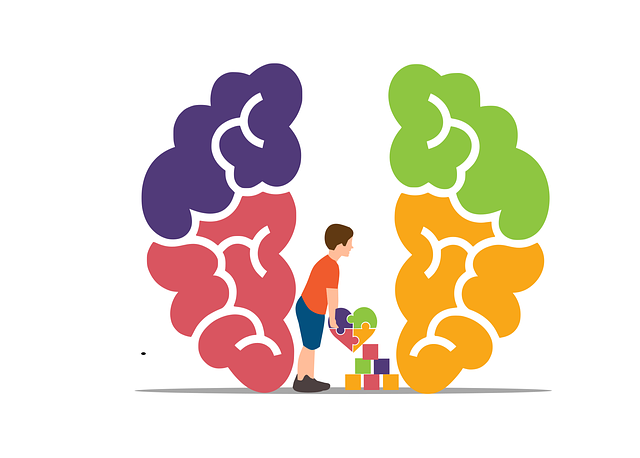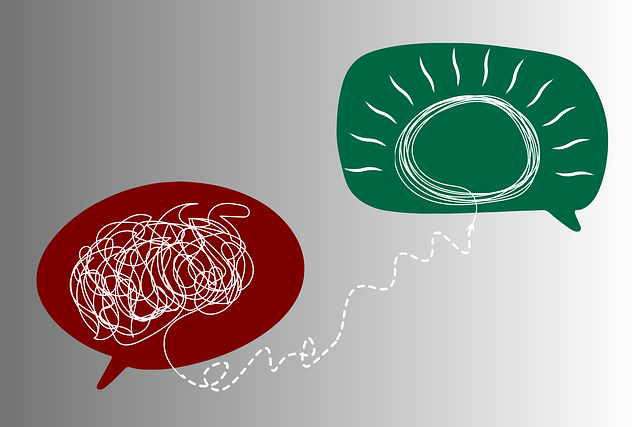Lakewood Bipolar Disorder Therapy focuses on the vital connection between social skills and mental well-being for individuals with bipolar disorder. By addressing social challenges and stigma, their specialized services empower clients with coping strategies and emotional intelligence. Social Skills Training (SST) is a core component, teaching communication, active listening, and emotional regulation to improve relationships and manage symptoms proactively. This holistic approach integrates burnout prevention for healthcare providers and fosters community support through podcast series, enhancing long-term recovery. Lakewood Bipolar Disorder Therapy revolutionizes mental health care by prioritizing comprehensive treatment, tailored guidance, and mindfulness practices for improved social functioning and quality of life.
Social skills training is a powerful tool in managing mental health conditions, especially bipolar disorder. This article explores the intricate link between social abilities and mental wellness, focusing on the unique challenges faced by those with bipolar disorder in social settings. We delve into the benefits of structured training programs, highlighting their role in improving coping strategies and enhancing overall well-being. Key components of effective programs are discussed, offering insights for professionals. Finally, we showcase how Lakewood Bipolar Disorder Therapy integrates these skills into treatment plans.
- Understanding the Link Between Social Skills and Mental Health
- Challenges Individuals with Bipolar Disorder May Face in Social Settings
- Benefits of Social Skills Training for Bipolar Management
- Key Components of Effective Social Skills Programs
- Integrating Social Skills Training into Treatment Plans at Lakewood Bipolar Disorder Therapy
Understanding the Link Between Social Skills and Mental Health

In the realm of mental health support, acknowledging the intricate relationship between social skills and overall well-being is paramount. Many conditions, such as bipolar disorder, often present challenges that extend beyond mere symptoms; they impact an individual’s ability to navigate social interactions. Lakewood Bipolar Disorder Therapy emphasizes the importance of addressing these social skills as a crucial component of holistic treatment. By understanding the mind over matter principles, individuals can learn to manage their emotions and better engage with others.
Emotional intelligence plays a significant role in this context, enabling individuals to recognize and manage both their own feelings and those of others. This skill set is particularly vital for those dealing with mental health conditions, as it fosters healthier relationships and enhances coping strategies. Moreover, risk management planning for mental health professionals can be tailored to incorporate these social skills training elements, ultimately contributing to more effective patient care and outcomes.
Challenges Individuals with Bipolar Disorder May Face in Social Settings

Individuals with Bipolar Disorder often encounter significant challenges when it comes to social interactions due to the nature and symptoms of their condition. Mood swings, which are a hallmark of bipolar disorder, can make maintaining relationships and engaging in social activities difficult. During manic episodes, individuals might become overly talkative, impulsive, or engage in risky behaviors that can strain personal connections. On the other hand, depressive episodes may lead to social withdrawal, lack of motivation, and difficulty initiating conversations, potentially isolating them further.
These social challenges can be exacerbated by the stigma surrounding mental health conditions, making it hard for those with bipolar disorder to seek support or participate in social events without fear of judgment. Building a strong self-care routine, which includes regular therapy sessions, is crucial for managing these symptoms and fostering better social connections. Lakewood Bipolar Disorder Therapy offers specialized services tailored to address the unique needs of individuals dealing with this condition, providing tools for coping, improving relationships, and enhancing overall well-being, including trauma support services and burnout prevention strategies.
Benefits of Social Skills Training for Bipolar Management

Social Skills Training (SST) offers a transformative approach to managing bipolar disorder, providing individuals with valuable tools for navigating social interactions and improving overall mental health. This evidence-based method aims to enhance coping skills development, which is crucial for those living with bipolar disorder. By learning effective communication strategies and emotional regulation techniques, Lakewood Bipolar Disorder Therapy clients can build healthier relationships and manage their symptoms more proactively.
Incorporating SST into treatment plans not only benefits individuals but also aligns with Burnout Prevention Strategies for Healthcare Providers, as it promotes mental wellness both inside and outside the therapeutic setting. The skills acquired through social skills training extend beyond therapy sessions, fostering a sense of community and support that is essential for long-term recovery. This holistic approach, combined with regular participation in a Mental Wellness Podcast Series Production, can significantly contribute to an individual’s journey towards stability and improved mental health.
Key Components of Effective Social Skills Programs

Effective social skills training programs for mental health conditions, such as Lakewood Bipolar Disorder Therapy, typically incorporate several key components. First and foremost, these programs focus on educating individuals about the nuances of interpersonal interactions, helping them understand non-verbal cues and improving their active listening skills. This foundation is crucial for developing meaningful connections and managing emotions during social exchanges.
Additionally, coping skills development plays a significant role in enhancing mental wellness. Programs often teach strategies to navigate social situations comfortably, manage anxiety relief, and build resilience against potential triggers. The integration of these techniques into daily life encourages individuals to participate actively in social environments, fostering a sense of belonging and overall mental wellness, as exemplified in our Mental Wellness Podcast Series Production.
Integrating Social Skills Training into Treatment Plans at Lakewood Bipolar Disorder Therapy

At Lakewood Bipolar Disorder Therapy, we recognize that social skills training is a vital component in treating mental health conditions like bipolar disorder. Integrating this approach into treatment plans offers a holistic strategy that addresses not just symptoms but also enhances overall functioning and quality of life. Our therapists are trained to provide personalized guidance, teaching essential communication, relationship-building, and problem-solving skills tailored to each individual’s needs.
By incorporating techniques from Mental Health Policy Analysis and Advocacy, our programs aim to empower clients with the tools needed to navigate social interactions confidently. We also incorporate practices like Mindfulness Meditation to foster self-awareness and emotional regulation, which are crucial for managing symptoms of depression prevention. Through these comprehensive methods, Lakewood Bipolar Disorder Therapy strives to revolutionize mental health care, offering a supportive environment where individuals can develop robust social skills and thrive in their personal journeys towards recovery.
Social skills training plays a pivotal role in managing mental health conditions, particularly bipolar disorder. By addressing challenges specific to social settings and providing individuals with effective tools, programs like those offered at Lakewood Bipolar Disorder Therapy can significantly enhance overall well-being. Integrating such training into treatment plans not only empowers individuals to navigate social interactions more confidently but also fosters a sense of belonging and support, ultimately contributing to improved mental health outcomes.











